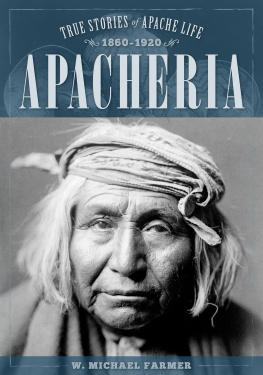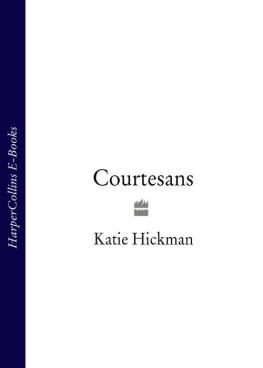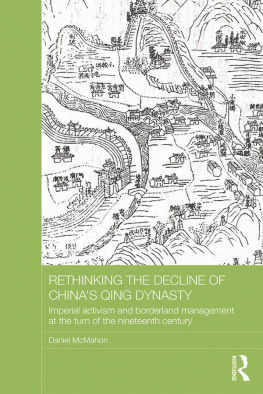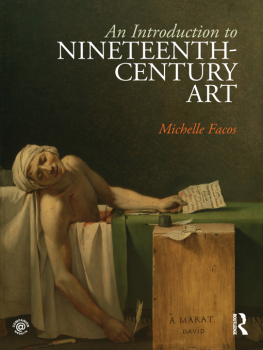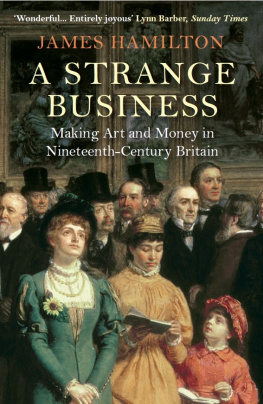Daniel Biyona - Culture and Money in the Nineteenth Century
Here you can read online Daniel Biyona - Culture and Money in the Nineteenth Century full text of the book (entire story) in english for free. Download pdf and epub, get meaning, cover and reviews about this ebook. year: 2016, publisher: Ohio University Press, genre: Politics. Description of the work, (preface) as well as reviews are available. Best literature library LitArk.com created for fans of good reading and offers a wide selection of genres:
Romance novel
Science fiction
Adventure
Detective
Science
History
Home and family
Prose
Art
Politics
Computer
Non-fiction
Religion
Business
Children
Humor
Choose a favorite category and find really read worthwhile books. Enjoy immersion in the world of imagination, feel the emotions of the characters or learn something new for yourself, make an fascinating discovery.

- Book:Culture and Money in the Nineteenth Century
- Author:
- Publisher:Ohio University Press
- Genre:
- Year:2016
- Rating:3 / 5
- Favourites:Add to favourites
- Your mark:
- 60
- 1
- 2
- 3
- 4
- 5
Culture and Money in the Nineteenth Century: summary, description and annotation
We offer to read an annotation, description, summary or preface (depends on what the author of the book "Culture and Money in the Nineteenth Century" wrote himself). If you haven't found the necessary information about the book — write in the comments, we will try to find it.
Culture and Money in the Nineteenth Century — read online for free the complete book (whole text) full work
Below is the text of the book, divided by pages. System saving the place of the last page read, allows you to conveniently read the book "Culture and Money in the Nineteenth Century" online for free, without having to search again every time where you left off. Put a bookmark, and you can go to the page where you finished reading at any time.
Font size:
Interval:
Bookmark:
CULTURE & MONEY IN THE NINETEENTH CENTURY
Series in Victorian Studies
Joseph McLaughlin, series editor
Katherine D. Harris, Forget Me Not: The Rise of the British Literary Annual, 18231835
Rebecca Rainof, The Victorian Novel of Adulthood: Plot and Purgatory in Fictions of Maturity
Erika Wright, Reading for Health: Medical Narratives and the Nineteenth-Century Novel
Daniel Bivona and Marlene Tromp, editors, Culture and Money in the Nineteenth Century: Abstracting Economics
Culture & Money in the Nineteenth Century
ABSTRACTING ECONOMICS
Edited by DANIEL BIVONA & MARLENE TROMP
OHIO UNIVERSITY PRESS
ATHENS, OHIO
Ohio University Press, Athens, Ohio 45701
ohioswallow.com
2016 by Ohio University Press
All rights reserved
To obtain permission to quote, reprint, or otherwise reproduce or distribute material from Ohio University Press publications, please contact our rights and permissions department at (740) 5931154 or (740) 5934536 (fax).
Printed in the United States of America
Ohio University Press books are printed on acid-free paper 
26 25 24 23 22 21 20 19 18 17 16 5 4 3 2 1
Library of Congress Cataloging-in-Publication Data
Names: Bivona, Daniel, editor. | Tromp, Marlene, 1966 editor.
Title: Culture and money in the nineteenth century : abstracting economics / edited by Daniel Bivona, Marlene Tromp.
Description: Athens, Ohio : Ohio University Press, 2016. | Series: Series in Victorian studies | Includes bibliographical references and index.
Identifiers: LCCN 2015049048| ISBN 9780821421963 (hardback) | ISBN 9780821445471 (pdf)
Subjects: LCSH: Culture19th century. | MoneySocial aspects. | BISAC: LITERARY CRITICISM / European / English, Irish, Scottish, Welsh. | BUSINESS & ECONOMICS / Economic History.
Classification: LCC HM621 .C85746 2016 | DDC 306/.009034dc23
LC record available at http://lccn.loc.gov/2015049048
ISBN 9780821445471 (e-book)
Contents
DANIEL BIVONA AND MARLENE TROMP
AERON HUNT
ROY KREITNER
DANIEL BIVONA
CORDELIA SMITH
JENNIFER HAYWARD
SUZANNE DALY
KATHRYN PRATT RUSSELL
MARLENE TROMP
Acknowledgments
Culture and Money in the Nineteenth Century: Abstracting Economics grew out of the Thirty-Second Annual Nineteenth-Century Studies Association Conference in 2011. This conference, chaired by Marlene Tromp and Daniel Bivona and entitled Money/Myths, sought papers that explored how money was understood in the nineteenth century and in its global context. We asked how the ideation of money evolved around and through art, music, architecture, race, nation, and empire; how the stories told about money influenced people and practices; and what role mythologies played in comprehending money. The conference drew submissions from across the globe and representing a broad array of scholarshiphistorians, literary critics, architectural historians, art historians, economic historians, and music historiansand covered topics as varied as widowhood, charity, coins, speculation, debt, wages, industry, empire, fundraising, and even fiduciary sexuality. We were so intrigued by the body of papers and by the dialogues that emerged at the conference, particularly those that covered unmapped territory, that we sought the permission of the NCSA to put together a volume based on this event. We invited some of the best papers at the conference to include in this book, a sampling that reached across the range of fields that NCSA covers.
At that time, we had little sense of how much our ideas would evolve as we wrangled with the questions that we, ourselves, had proposed in the call for papers. What we had originally called mythologies, we came to see instead as active abstractions. Mythologies as a construct seemed too passive, too temporally and culturally transcendent, to capture what we saw as active, historically situated processes of interpenetration, naturalization, and universalization. Those structures that seemed most mythic, we came to believe, were, in fact, evidence of the process of abstraction at work. This understanding, then, guided the development of the volume and the chapters within it.
We are grateful to the NCSA, its board of directors, and its president, Lucy Morrison, for their support of our concept for the conference and of the volume. We valued the willingness of the authors herein to share their work in this forum and to develop their contributions as we developed the volumes concept, acknowledging that while any strengths of this project are owed to many, any defects are ours alone. We owe a great deal to the body of scholars at the NCSA conference, who heard all our papers and helped us develop our insights. We especially want to thank the reviewers of this book, whose feedback was critical in helping us sharpen our thinking. We thank the staff at Ohio University Press for their support in bringing this project to the printed page. We also want to acknowledge and thank the staff at New College of Interdisciplinary Arts and Sciences at Arizona State University, particularly Mary Bauer, Lucy Berchini, Tracy Encizo, and Stacey Kimbell, who supported us as we wrote, and to ASU itself for the research leave that supported Daniel Bivona and for the encouragement that all its faculty produce scholarship, even when engaged in administrative work. Our final word of thanks goes to our patient families, who have valued our active scholarly life and its work, even when it taxed our time and energy. It has been a pleasure, for both of us, to work together on this project and to engage in conversation about our field. We are grateful for the opportunity to do so with you now.
INTRODUCTION
Abstracting Economics
Daniel Bivona and Marlene Tromp
From the early 1980s onward, scholars in the humanities have taken an increasing interest in economics as an object of critical study in their own fields, and there are compelling reasons for this attention. Chief among these are the recognition that economics inflects and perhaps shapes nearly every other issue we study in the period and an understanding that the birth of the field during the nineteenth century gives that relationship between that moment of time and that body of knowledge special weight. Political economy, or the dismal science, emerged as a distinct, recognizable disciplinary strand closely entwined with Benthamite utilitarianism. Ultimately, the field enshrined its own intellectual heroesAdam Smith, Thomas Malthus, David Ricardoin a pantheon constructed in John Ramsey McCullochs textbook The Principles of Political Economy (published in 1825). Even more influential with the literate public than McCullochs work during the next decade was Harriet Martineaus Illustrations of Political Economy. Martineaus narratives, published between 1832 and 1834, sought to help readers grasp the basic concepts of political economy by furnishing them with stories that illuminated important political economic concepts. Aimed at a broad audience that was, by and large, not well-informed about either the details of economic issues or the principles of political economic thought, Martineaus Illustrations demonstrate how the literary (and humanistic) and the economic were closely tied together from the What was also clear to many by the 1830s was that the doctrines of political economy were sufficiently obscure and counterintuitive to ordinary readers to require the aid of didactic abstracts.
Such economic narratives can today offer us a means of analyzing a range of cultural processes and attitudes that can provide a keener understanding of the nineteenth century. The kind and quality of investment and the processes of speculation; the physical manufacture of money and its representational function, the shifting fiscal value of goods, services, and ideas; and how one understands investors become critical to understanding nineteenth-century social networks. Similarly, the language and concepts developed to articulate economic processes infiltrated other aspects of culture. How people understood the value of banknotes and how individuals, families, and groups were impacted by economic language, even in cases in which these matters seem only tangentially related to money matters, were objects of great concern throughout the century and form the basis of several of the chapters here. This volume sets out to explore how these processes work and to launch a new conversation in our field about what a better understanding of this interpenetration might reveal.
Next pageFont size:
Interval:
Bookmark:
Similar books «Culture and Money in the Nineteenth Century»
Look at similar books to Culture and Money in the Nineteenth Century. We have selected literature similar in name and meaning in the hope of providing readers with more options to find new, interesting, not yet read works.
Discussion, reviews of the book Culture and Money in the Nineteenth Century and just readers' own opinions. Leave your comments, write what you think about the work, its meaning or the main characters. Specify what exactly you liked and what you didn't like, and why you think so.

